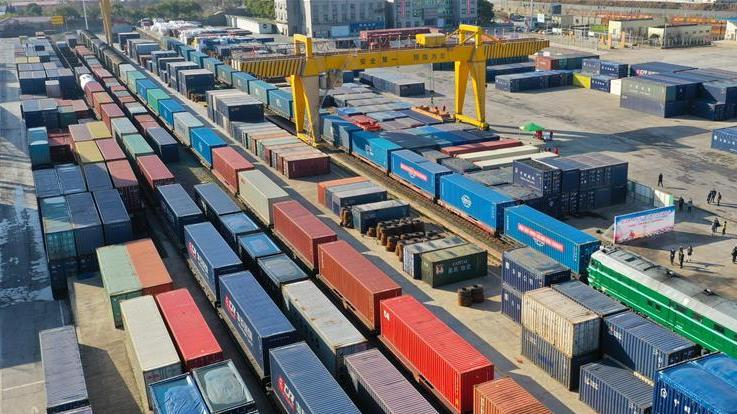
Editor's note: CGTN's First Voice provides instant commentary on breaking stories. The daily column clarifies emerging issues and better defines the news agenda, offering a Chinese perspective on the latest global events.
In a rather dramatic turn of events, Lithuania's Social Democratic Party leader stated that Lithuania should work with the EU and other partners to consider renaming the "Taiwan Representative Office" to ease tensions with China. "Lithuania wants to 'sacrifice' its foreign minister to improve relations with China," the Russian Satellite News Agency reported on January 10, days after the country's president publicly said that the government made a mistake in allowing the usage of the name "Taiwan."
Lithuania's decision to ignore the one-China policy and step on China's diplomatic red lines initially seemed like a clever move. Trade between China and Lithuania is relatively insignificant. Lithuania expects to be rewarded by the Biden administration, which is striving to contain China's rise by any means.
The maneuver won praise from U.S. Secretary of State Antony Blinken. And the Baltic country set up a trade representative office in Taipei that's expected to start operating this spring. Taiwan separatists are trying to spin these developments as giving their futile request for international recognition some credibility. Predictably, these separatist forces have made attractive but ultimately vague offers about opening a microchip foundry in Lithuania to reward the country for supporting their dream of independence. However, no concrete promises have been made, and it is difficult to imagine that separatists could offer any enticement that could offset the costs facing Lithuania.
Europe's reaction was rather muted because its leaders understood the mess into which the EU was being dragged. Europe made clear that the affair was a domestic Lithuanian issue, and reiterated the EU's continuing support of the one-China policy and its rejection of Taiwanese separatism.
Behind the scenes, European political and business leaders were furious with Lithuania. China is the EU's biggest trading partner, with trade valued at about $700 billion annually. Even at the height of the Western anti-China wave, the EU was reluctant to hurt its economic relationship with China in any substantial way. They don't want this inconvenient and unnecessary cudgel to smash the relationship today.

A China-Europe freight train awaits departure at Xiangtang railway port in Nanchang, east China's Jiangxi Province, February 17, 2020. [Photo/Xinhua]
While the EU is trying very hard to draw a clear line between Lithuania's actions and the bloc's foreign policy, this balancing act is becoming more and more difficult as the controversy lingers on. Lithuania's highly symbolic and provocative move threatens to make Chinese foreign policy in Europe an issue driven by emotional, short-term partisan domestic political considerations instead of the EU's long-term interests.
Because that's what this whole saga is – a domestic political game engineered to bolster the domestic standing of the ruling coalition, which identifies as pro-Western and anti-communist. It is a position based on deceptively conflating the history of the Communist Party of China with Lithuania's unique history.
When Lithuanian President Gitanas Nauseda gave his "mea-culpa" last week, reports surfaced that he and the foreign minister have long been at odds with one another. President Nauseda deliberately emphasized that the minister didn't inform him of the change beforehand. Implausible, isn't it? The minister denied the accusation, and the opposition is now calling for his resignation.
As Lithuania's politicians turn on each other, casting blame and searching for scapegoats, they expose this entire sordid incident for what it really is – partisan and personal politics disguised as foreign policy. And getting rid of a single politician, even a foreign minister, won't be enough to change the trajectory. There will always be politicians who want to use an anti-China policy and rhetoric to boost their own political standing. "Sacrificing" one doesn't make a difference to the bigger picture that foreign policy must not be overtaken by winning domestic partisan battles, which may help certain political factions but hurt national interests overall.
China does not interfere in other nations' domestic politics. In the same way, China will not tolerate interference in its own domestic political matters. Lithuania needs to show enough good faith – in words and especially in deed – before China will consider accepting its attempts to repair the relationship. The opening of offices, trash talk about China's intentions and eagerly using international politics for personal gain are not part of the deed.

 中文
中文



